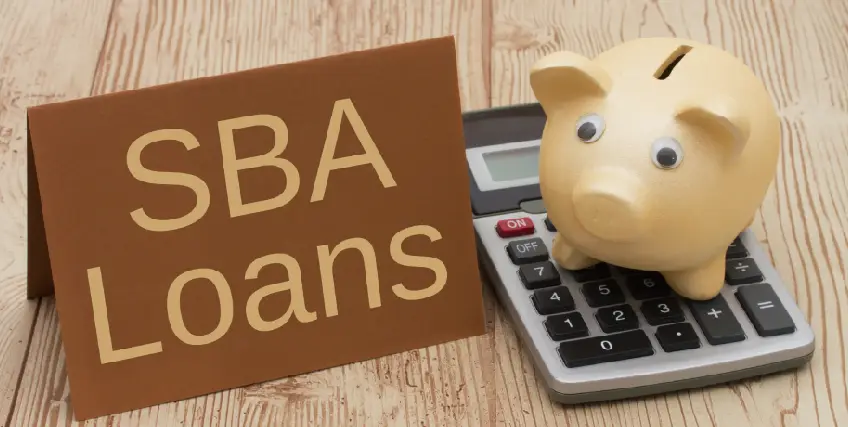Small Business Loans vs. Personal Loans: Choosing the Best Funding for Growth
January 24, 2025 | Last Updated on: January 24, 2025

When looking to fund a small business, many entrepreneurs turn to small business loans for the money they need. Other business owners turn to personal loans based on their FICO credit score and personal income. How do you choose between business loans for small businesses and the best personal loans? In this article, we compare small business loans vs. personal loans to uncover their benefits, drawbacks, and how to decide which type of loan is best for your situation.
A Quick Introduction to Small Business Loans and Personal Loans
While there are many similarities between these types of loans, it is also important to understand what makes them different.
Personal Loans
You obtain a personal loan by evaluating your personal credit score and income. The eligibility factors are typically more relaxed versus getting a business loan or line of credit. The higher your credit score, the more likely you will get approved for a personal loan.
There are many types of personal loans, and they often serve a specific purpose. You may use a personal loan to buy a new or used car, pay college tuition, or cover home repairs. While you can use a personal loan to cover any expense, they typically offer a lower loan amount than a business loan.
Business Loans
Business loans tend to have more restrictions on how you can use the loan proceeds. The application may request how you'll use the money, which can impact the lender's decision on your loan request. The loan proceeds must be for business reasons.
The best way to use the money is to find ways to generate annual revenue or reduce expenses for your small business. You may fund equipment loans to increase efficiency or buy inventory to meet customer demands. The money can also pay off higher-interest rate debt or get better pricing by buying in bulk.
Business owners can access numerous small business loan programs, depending on how the money will be used. Small business loans typically allow for larger loan amounts and longer repayment terms. However, the application process for small business financing is typically more in-depth than applying for a personal loan.
Can You Use a Personal Loan For Your Small Business?
The traditional use of personal loans tends to be for personal reasons, but there’s no reason you can’t use them for your small business. Many entrepreneurs take out personal loans or credit cards to fund a new business startup since they don't have any revenue to qualify for a business loan. However, it’s important to check with your lender first as some may restrict how you use the funds.
Small business loans are a lot more strict. A very lengthy eligibility process looks at many factors that can approve your loan application. These include business credit, personal credit, financial history, cash flow, business industry, time in business, and more. Some lenders require a business plan that explains how you’ll use the loan amount for your small business.
Business Loan vs. Personal Loan: Advantages and Disadvantages:
Business Loan Advantages:
- Higher Loan Amounts: Small business loans are the best option if you’re looking for a substantial loan amount for your business. SBA loans and other term loans can lend up to $5 million to purchase real estate, buy an existing business, purchase equipment, or fund working capital.
- Builds Business Credit: Although some small business loans require excellent credit, online lenders are more willing to fund entrepreneurs with bad credit or a thin credit profile. Taking out a loan and making on-time monthly payments can help you improve your business credit score and qualify you for other types of business loans.
- Lower Interest Rates: Small business loans offer very competitive interest rates. For example, the Small Business Administration SBA 7(a) loan program has competitive rates of 12.5% to 15.5% annual percentage rate (APR) for variable interest rates and 10.5% to 14% APR for fixed rates, based on your creditworthiness. (As of January 2025)
Business Loan Disadvantages:
- Lengthy and Difficult Application Process: Small business loans have an application process that’s more difficult than a personal loan. Traditional lenders require in-depth underwriting, which is time-consuming.
- Might Require a Personal Guarantee: Since the business owner and their company's finances are intertwined, many lenders require a personal guarantee. This allows the lender to sue you personally if the company does not repay its loan.
- Business Loans May Have an Origination Fee: Your lender will likely add an origination fee upon funding the loan. This fee covers the lender's costs, including underwriting and preparing the loan term paperwork. Origination fees can range from 0.5% to 5% or more. These fees are typically taken out of the loan proceeds, which reduces the disbursement amount that deposits into your business bank account.
Personal Loan Advantages:
- Easy Application Process: It is easy to apply for a personal loan and receive a quick decision on your application. Having a good FICO credit score increases your approval odds.
- Fast Funding: Typically, these loans take 5-7 business days to be approved and get funding — depending on the lender. That makes them a good option for a short-term injection of capital.
- No Need for Collateral: With an unsecured personal loan, you don't need to collateralize the loan with a lien on your home, investments, or other assets. Most personal loan lenders only need an excellent credit report to approve your loan.
Personal Loan Disadvantages:
- Significantly Shorter Loan Amounts: Personal loan sizes are generally much smaller than small business loans. If you are considering a significant expansion, these loans may not provide enough capital to meet your business needs.
- Not Meant For Small Businesses: Personal loans are meant for personal purchases. While you can use the money to provide payroll or buy equipment, it is intended for personal expenses like medical bills, home improvement, or debt consolidation.
- Don’t Improve Your Business Credit Score: If your business has bad credit or you want to establish business credit, a personal loan will not do that. Other options are available to receive better terms and higher amounts or improve your business credit score.
Small Business Loan vs. Personal Loan: What Do Lenders Look For Approval
It’s crucial to understand what lenders expect from their borrowers so you can improve your approval odds.
Small business loan
Most lenders require a set piece of eligibility standards that business owners must have for loan approval. Small business loans have a lengthy and strict loan application process. Lenders prefer to lend to established businesses with solid business purposes, business expense reports, and cash flow. But also, with good credit — business credit and personal credit — and more deciding factors.
Traditional lenders require that borrowers have solid eligibility factors and present a business plan explaining the business purposes of the loan term. On the other hand, if you need business funding and don’t have these requirements, you can also apply through alternative lenders.
Personal loan
Personal loans are easier to apply for. Lenders usually require good credit and reliable income. Traditional lenders look for a debt-to-income ratio (DTI) no higher than 40%. But on a higher personal loan amount, your lender might require a secured loan, for which you’ll have to provide collateral or a personal guarantee.
Which Type of Loan Benefits Your Small Business the Most
You Should Use a Personal Loan if
- You’re a new business: If you’re a new business or startup, lenders may not approve you until you have a track record of profitability.
- You require fast funding: Personal loans can be approved quickly. In some cases, the same day.
- You don’t want to put collateral: Most personal loans don't require the borrower to provide collateral.
- You don’t need to build business credit: While building business credit is advisable for any small business owner, a personal loan is a good choice when you already have good business credit.
You Should Use a Small Business Loan If:
- You require more capital for your small business: Personal loans typically offer lower loan amounts than loans from banks or the Small Business Administration.
- You have a solid business credit score: With excellent credit, you’ll qualify for the best interest rates and loan terms for your business.
- You want to separate your finances: Since small business loans are a business-specific financing option, it’ll be much easier to separate your business and personal finances when preparing your tax returns.
- You want to limit your liabilities: If you have a limited liability company (LLC) or corporation, you may be able to avoid personal liability for the loan.
Examples of Small Business Loans and Personal Loans
Discuss your financing needs with multiple lenders to discover personal loans and small business loans available for your business. Here are a few loan options to consider:
Business Line of Credit
A business line of credit allows a business owner to have a credit limit that they can use as business needs arise. Credit limits can go up to $100.000 for unsecured lines of credit, while a secured business LOC can go much higher. Plus, you only pay interest on the amount you use.
Credit Cards
Business credit cards vs. personal credit cards are also very similar — save for a few exceptions. Business credit cards tend to have a higher credit limit and can offer discounts or rewards on business-related spending categories, like small equipment financing, office supplies, advertising, and phone bills.
The Bottom Line
When choosing between small business loans and personal loans, the choice depends on your personal and business finances. Personal loans tend to be easier to get, but they offer lower loan amounts that may be insufficient for your business needs. Small business loans require more in-depth underwriting, but the loan amounts are larger and less reliant on your personal FICO credit score. SBA loans also offer government backing, which can make it easier to get, even with bad credit. Alternative lenders offer an easier qualifying process, which makes them ideal when your credit history isn’t the best.
Frequently Asked Questions (FAQs)
Is it Hard to Get a Small Business Loan?
Profitable businesses with a long track record and good credit should be able to get approved relatively easily. Startups and business owners with bad credit may have trouble getting approved by a traditional bank. Online lenders may be more willing to approve your loan request, but you may have to pay higher interest rates and fees due to higher risk to the lender. Search "small business loans near me" to find lenders in your community.
Can LLCs Get Small Business Loans?
Yes, you can get approved for small business loans using your limited liability company (LLC). The lender may base its decision on your company's profitability, history, credit score, and other factors. Your personal credit score may also impact the lender's decision and the interest rates you receive.
What Credit Score Do I Need to Get a Small Business Loan?
The minimum credit score to get approved for small business loans varies by lender. Many traditional banks require credit scores of 680 or higher for approval. Depending on the type of loan, you may get approved by alternative lenders with FICO credit scores as low as 500.
How Long Does it Take a Bank to Approve a Small Business Loan?
Traditional banks can take weeks to approve your loan request. If they require additional paperwork, any delays by you can extend the time even further.




